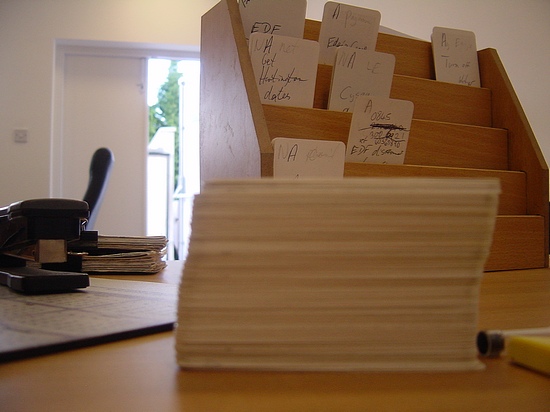Making my project and context lists "lean and mean" has worked well for me, but has created the side effect of ballooning someday/maybe lists.
My someday/maybe lists seem to consist of the following items (with multiple categories):
- someday (important to do, just can't do right now because of queuing issues)
- maybe (may or may not ever do)
- disconnected, random next actions
- inchoate - not sure what it is
- projects
- next actions associated with projects that I've already put somewhere in in my list
I've thought of organizing the items by some combination of higher levels and someday vs. maybe (e.g., each 20K role and someday or maybe).
My concern is that (1) in this huge pile of someday maybe's I'll loose the important projects that I've simply put here because I can't get to them right now and (2) I'll loose the next actions that go with them.
Thank you in advance for any recommendations.
My someday/maybe lists seem to consist of the following items (with multiple categories):
- someday (important to do, just can't do right now because of queuing issues)
- maybe (may or may not ever do)
- disconnected, random next actions
- inchoate - not sure what it is
- projects
- next actions associated with projects that I've already put somewhere in in my list
I've thought of organizing the items by some combination of higher levels and someday vs. maybe (e.g., each 20K role and someday or maybe).
My concern is that (1) in this huge pile of someday maybe's I'll loose the important projects that I've simply put here because I can't get to them right now and (2) I'll loose the next actions that go with them.
Thank you in advance for any recommendations.

